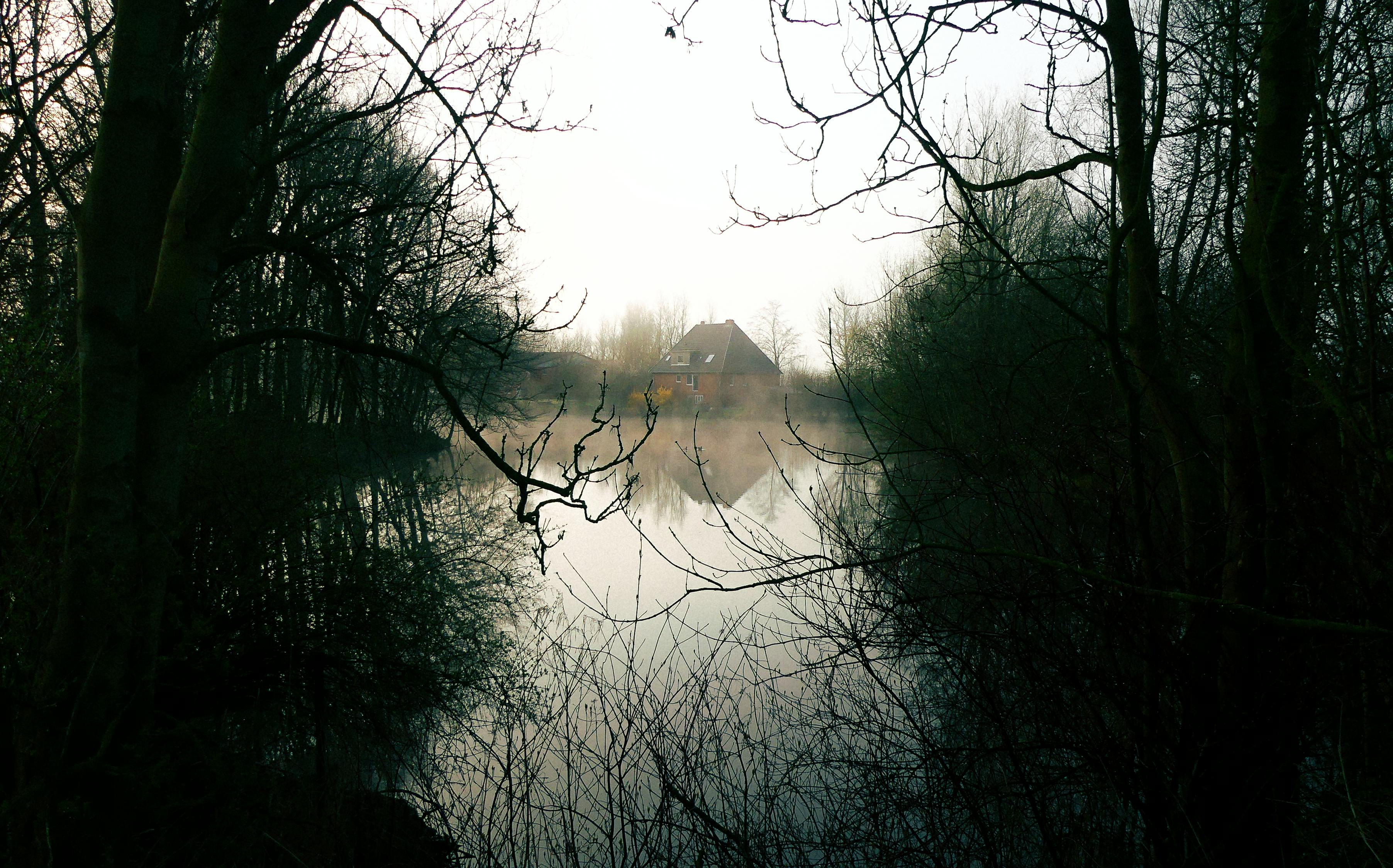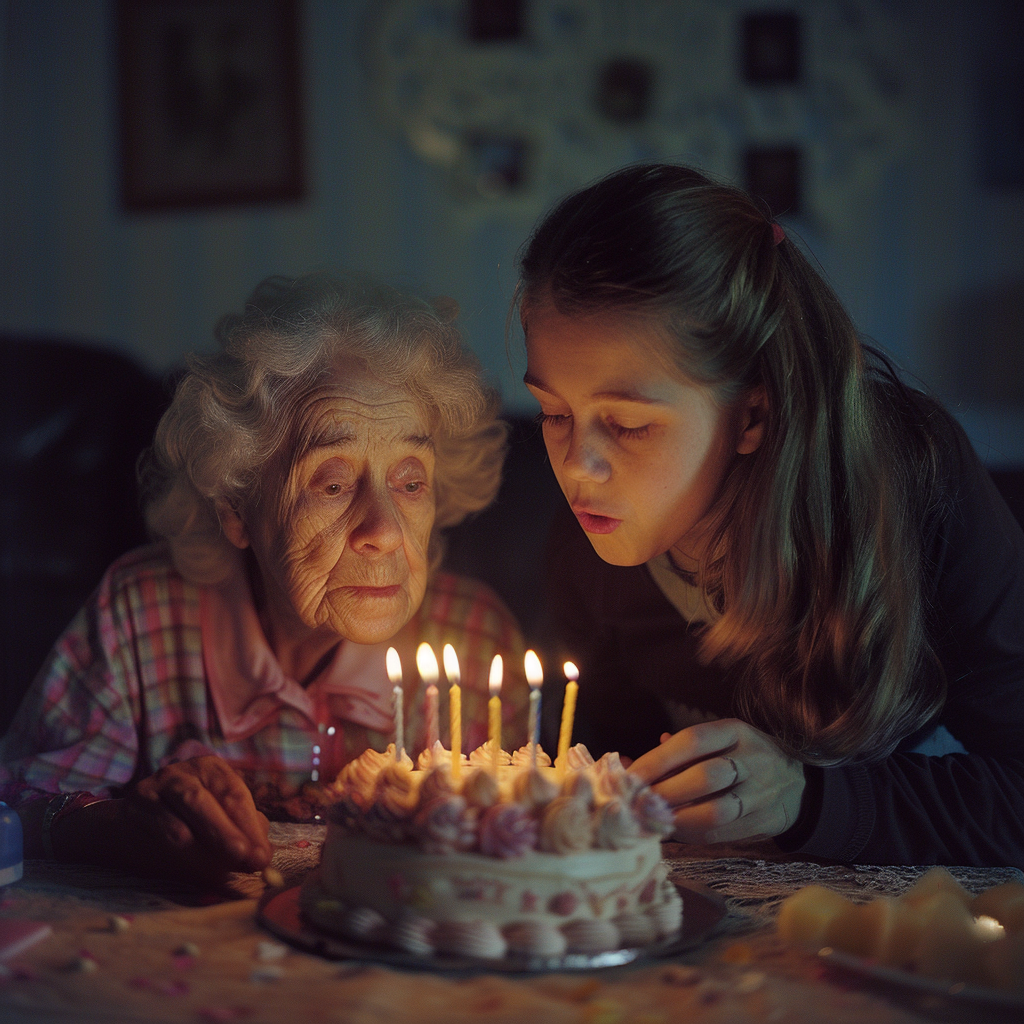In 2003, years after the Titanic film was released to the public, actor Bill Paxton opened up about how he went on a submersible ride to experience everything firsthand as well.
The interview was ahead of the documentary Ghosts of the Abyss release. The documentary showed director James Cameron discussing his inspiration for the film and taking several people, which included Paxton, on unscripted dives to the Titanic’s site.

“Each dive, I had to kind of look myself in the mirror and go ‘OK, are you ready for this?’” Paxton said in the 2003 interview. “It’s one of those things where Jim [Cameron] asked me in passing to go and…the opportunity of a lifetime. I jumped at it,” the actor explained.
“But then you start thinking about physically what’s going to be required of you to get into a three-man, deep-sea Russian submersible for a 13-hour dive,” he shared. “To go down two and a half miles to a place where the sun has never penetrated. And you’re starting to think ‘OK, I’ve got young kids. I need to get them to an age where they can support themselves before I do something this crazy.’”
“Jim is an infectious guy. And also, God, who wouldn’t go on this adventure?”

He even went on to even talk about how comfortable the inside of the submersible he dived in was. He said it was “relatively comfortable,” before noting that “certainly there are things that can go wrong.”
“If they do go wrong, it’s not going to matter anyway. And it’s going to happen so quickly that you’re not even gonna know it happened, probably,” he noted. “These are the thoughts you have going in.”
He even explained how to him, “the price of admission” seemed “kind of low” given the “great experience” you got in return.
“You approach the bow, and then you rise up over it. And you’re looking down on the ship, and you are a ghost of the abyss. And the images stay with you. The images, they really have an effect,” he said before he talked about the “personal story” attached to the sunken ship.
Posted by R.I.P Bill Paxton on Sunday, June 13, 2021
“I think all of us at some time in our dreams or even our waking moments have pictured ourselves: What would it have been like to be on that deck? Knowing that the lifeboats had gone away. What were you gonna do? Contemplating your own fate. It’s this ultimate parable of, how would you measure up?” he questioned, calling the Titanic “a perfect tragedy.”
“You think about the people on the water. You think about the people on the boats looking back and seeing the stern of that ship come up out of the water like a city rising up out of the sea,” the actor said. “You think about the people in the water. I swam in the water out there, which was a very disconcerting experience because you think there’s that much ocean underneath you.”
It was clear that the actor knew of all the risks before going into the experience. As for the five men aboard the submersible that dominated headlines in the last week, the U.S. Coast Guard announced that they discovered “presumed human remains.”
Grandmother Sets Marriage Deadline for Granddaughter by Her 70th Birthday or She’s Excluded from Will — Story of the Day

Sophie was enjoying a delightful evening with family when her grandmother, Evelyn, decided to drop a bombshell. Evelyn’s announcement went beyond the ordinary. To get her inheritance, Sophie needed to get married within a month—in time for Evelyn’s upcoming birthday!
The living room was noisy as the whole family gathered at Evelyn’s large, old-fashioned house. With her pink clothes, she was always a vibrant character. For years, her energy was unmatched.
“Everyone, I need your attention!” Evelyn’s voice rang out, commanding silence. Her eyes sparkled as she surveyed her gathered relatives. The chatter ceased, and all eyes turned to her.

For illustration purposes only | Source: Pexels
“Sophie,” Evelyn began, her gaze fixed on her granddaughter, who sat uncomfortably under her family’s eyes.
“You have dedicated your life to your career, which is commendable. But you’ve paid a price by neglecting our cherished family values.”
Sophie shifted in her seat, her expression one of slight annoyance. She knew this conversation was coming. Her grandmother’s values were from a different time, after all.
Evelyn continued, “I stand before you as the last guardian of our family’s traditions, and it pains me to see them so easily cast aside.” Her words hung heavily in the air: “That is why I have decided, unless Sophie can find a husband by the time I turn 70 next month, she will not be included in my will.”

For illustration purposes only | Source: Pexels
Sophie’s face turned pale, eyes wide in shock as the room fell eerily silent.
“Grandma, you can’t be serious,” she murmured, her voice barely above a whisper, but Evelyn’s face remained resolute.
“I am utterly serious, Sophie,” Evelyn responded sternly. “I cannot pass on my legacy to someone who shows no interest in continuing our family line.”
Her voice was firm, leaving no room for negotiation.

For illustration purposes only | Source: Midjourney
Sophie’s frustration boiled over as she stood up abruptly, her chair scraping loudly against the floor.
“I’ve spent years building my career, investing time and energy to become who I am today,” she protested, her voice rising with each word. “And now, just because I haven’t married, you want to cut me off from the inheritance? That’s not fair!”
Evelyn looked up at her granddaughter, her expression unyielding.
“Life is about choices, Sophie. You chose your path, and now I am choosing mine.”

For illustration purposes only | Source: Pexels
Stung by the harsh reality of her grandmother’s words, Sophie felt a surge of emotion. She stormed out of the room, slamming the door behind her with a loud bang that echoed through the quiet house. She sat in her car, crying out in the night silence.
***
Sophie approached her grandmother’s challenge like another task at work, thus tackling it with due diligence.
She threw herself into the dating world, setting up profiles on several online dating sites, attending speed dating events, and even letting her friends set her up on blind dates. However, her experiences ranged from bizarre to downright disastrous.
One evening, she met Jason, who seemed charming at first. As they sat in a cozy restaurant, Jason leaned in.
“Do you know that the moon landing was staged?” he whispered conspiratorially. Sophie choked on her drink, her eyebrows raised in disbelief. The date went downhill as Jason delved deeper into his conspiracy theories.

For illustration purposes only | Source: Pexels
Then she met Peter, who talked at length about his collection of exotic reptiles.
“And here’s a photo of my pets, Monty and Tweedy!” he exclaimed, showing Sophie pictures of his cat and dog on his shelf. Sophie smiled politely, her interest waning by the second.
Each date left Sophie more disillusioned. During a date at a quaint coffee shop, she slipped into managerial mode, discussing revenue streams and market dynamics, completely missing her date’s glazed-over expression.
These failed attempts and each awkward goodbye underscored her growing despair. She was utterly unprepared for this unpredictable world of dating.

For illustration purposes only | Source: Pexels
***
Back at the office, Sophie was scrolling through her phone, her latest date yet another letdown. She sighed and turned to Steven, her reliable assistant, who was busy organizing files.
“Steven, can we talk?” Sophie’s tone was serious.
“Sure, what’s up?” Steven asked, attentive.
Sophie hesitated, then blurted out, “I need a huge favor. I want you to pretend to be my boyfriend for a week.”

For illustration purposes only | Source: Pexels
She rushed on, “I’ll pay you, of course.”
Steven blinked, taken aback. “Pretend to be your boyfriend? Sophie, are you sure about this?”
“It’s just a week to get my grandmother off my back,” Sophie explained hastily. “We can call it off right after her birthday party.”
Seeing her distress, Steven agreed, albeit reluctantly. “Okay, I’ll do it. But let’s make it believable, at least.”

For illustration purposes only | Source: Pexels
They started spending more time together, exchanging basic information like favorite foods and hobbies.
Sophie, ever the perfectionist, turned their casual chats into intense interrogations about Steven’s background, his views on marriage, and even his credit score.
Realizing they needed a different approach, Steven suggested, “How about we spend this weekend at my cousin’s lake house? Just relax, be ourselves. It might help us be more convincing.”
Sophie agreed to Steven’s suggestion.

For illustration purposes only | Source: Pexels
***
“Okay, Steven, how hard can this be?” Sophie asked with a laugh, tying an apron around her waist as they stood in the small, rustic kitchen of the lake house. They were both attempting to cook dinner, an activity neither was exceptionally skilled at.
“According to my cousin, just throw everything in the pot and hope for the best,” Steven replied, chopping vegetables.

For illustration purposes only | Source: pixabay
The pot simmered on the stove while they tried their luck fishing by the lake. Standing side by side with fishing rods, they quickly realized they needed more talent for it. After several failed attempts, Sophie burst out laughing. “Why are we so bad at this?”
“It’s about spending time together, isn’t it?” Steven smiled in answer.
As night fell, they sat by a small fire pit, wrapped in warm blankets and sharing stories of their childhoods.
“You know, I used to think being strong meant doing everything alone,” Sophie confessed, her voice soft against the crackling of the fire. “But this… this is nice. Sharing moments, I mean.”
Steven nodded, passing her a marshmallow to roast.

For illustration purposes only | Source: Pexels
“Yeah, life’s better with good company. Even if it’s just roasting marshmallows and failing at fishing.”
By the end of the weekend, as they packed up to leave, Sophie realized she enjoyed Steven’s company far beyond the confines of their initial agreement.
“It’s strange,” Sophie mused as they drove back, “how a weekend can change so much.”
The atmosphere on their way home was warm and relaxed. Steven finally felt comfortable in the friendly setting and opened up about his dreams.

For illustration purposes only | Source: Pexels
“You know, I’ve been thinking a lot lately,” he started, navigating the winding road. “This weekend helped me realize how much I want to pursue my dreams. I’ve always wanted to start my own business. Maybe a bakery or a café.”
Despite the warmth of their shared weekend, her initial self-interest shadowed her reaction. She remained silent, keeping her concerns to herself, not wanting to discourage him, and dreading the potential disruption to her plans.

For illustration purposes only | Source: Pexels
***
Sophie and Steven arrived at Evelyn’s elegant home, where Evelyn had organized a formal dinner to meet Steven, whom she had heard much about. The house was aglow with soft lights, and a gentle aroma of roasted meats and seasoned vegetables filled the air.
As they walked in, Evelyn greeted them with a beaming smile.
“Steven, I’m so pleased to meet you at last,” she exclaimed, offering a hand that Steven shook warmly.
“Thank you, Mrs. Johnson. It’s an honor to be here,” Steven responded, his voice carrying genuine respect.
Steven was the epitome of charm and grace during the dinner, effortlessly engaging with other guests and sharing amusing anecdotes that brought smiles.

For illustration purposes only | Source: Pexels
Sophie, however, seemed distant. Despite the cozy atmosphere, her interactions with Steven were cold and formal, contrasting with the warmth they had shared over their weekend getaway.
After dinner, Evelyn noticed their tension as they retreated to the living room for dessert. She decided to find out what was going on.
“Sophie tells me you two had a wonderful weekend at the lake house, Steven. It must have been quite the getaway.” Her eyes twinkled with curiosity.
Steven glanced at Sophie, a hint of warmth in his expression.

For illustration purposes only | Source: Pexels
“Yes, it was amazing. We got to know each other beyond work.”
Sophie’s response was curt, almost dismissive. “It was a nice break,” she said, avoiding Steven’s eyes.
Sophie’s behavior puzzled Evelyn when Steven’s earnestness spoke volumes. As he excused himself to fetch some appetizers, Evelyn paused to talk privately with Sophie.
“Sophie, dear, what’s going on? I can see Steven cares deeply. Don’t play with his feelings,” Evelyn whispered, her voice stern yet concerned.

For illustration purposes only | Source: Pexels
Sophie masked her surprise with a feigned smile.
“Grandma, everything is fine. Steven and I are pleased. He’s even thinking about proposing soon,” she lied, hoping to appease her grandmother.
Evelyn, however, was only partially convinced. She nodded slowly, her doubts quietly mounting.
At that very moment, Steven reappeared, holding a plate of snacks. His timing was such that he likely overheard the conversation. His demeanor changed for the rest of the evening; he became quieter and more reserved.
When it was time to say goodbye, he nodded to Sophie and left without a word, his silence heavy with unspoken thoughts.

For illustration purposes only | Source: Pexels
***
The following day, the office felt colder and emptier. Sophie soon discovered why: Steven had resigned. He came to collect his belongings.
“I thought we were getting closer, Steven. What happened?” Sophie asked in confusion.
Steven sighed, his frustration evident.
“After the weekend, I thought we had something real. But you shut down and returned to treating me just as an assistant.”

For illustration purposes only | Source: Pexels
Sophie looked away, unable to meet his gaze.
“I’m sorry, Steven. I just… I got scared.”
Steven shook his head, his decision firm.
“I need more than this, Sophie. And I can’t accept your money for the charade.”
He picked up his box, his shoulders set as he walked away, leaving Sophie alone with her regrets.

For illustration purposes only | Source: Pexels
***
Sophie spent the morning before Evelyn’s birthday party lost in thought, meticulously choosing her outfit, each piece selected to reflect a blend of respect and celebration.
As she dressed, her mind was awash with memories of Steven—their weekend at the lake, the arguments, the confessions, and finally, his resignation. The intensity of her feelings surprised her; she hadn’t realized just how deeply she had fallen for him until he was gone.

For illustration purposes only | Source: Pexels
When Sophie arrived at the party, her heart skipped a beat when she spotted Steven mingling among the guests. Ever the astute matriarch, Evelyn, had extended the invitation to Steven, a gesture that spoke volumes of her fondness for him.
Sophie’s nervousness was palpable as she approached him, her palms sweaty, her heart pounding.
“Steven,” she began, shaky but sincere, “I owe you a huge apology.” She took a deep breath, gathering her courage.
“The truth is, I missed you terribly. But it’s more than that. Our pretending… it turned into something real for me. I feel for you, genuinely and deeply. I’m so sorry for all the deception—it started about my grandmother’s will, but it became about so much more.”

For illustration purposes only | Source: Pexels
Steven’s expression, initially guarded, softened as he listened to her words.
“Sophie,” he replied gently, “I forgive you. I was part of the charade, too, remember? I agreed because… well because I’ve had feelings for you for quite a while. I thought this might allow us to explore if something could be real between us.”
Evelyn had been quietly observing their moment of reconciliation until she chose to join them, her approach soft yet deliberate. She took a seat opposite Sophie, her eyes glinting with wisdom and a bit of mischief.
“Sophie, you’ve finally not disappointed me,” Evelyn said, a warm smile spreading across her face. “You’ve come to realize what truly matters. That’s why I’ll leave the inheritance to you and whatever family you build.”

For illustration purposes only | Source: Pexels
Her voice grew tender, “I never intended to follow through if you married just to meet the will’s conditions. I know you well enough, my dear. It wouldn’t have been right. All this was a test, a push to get you to look beyond your career achievements.”
Before the conversation could dip into awkward silence, Steven, ever the peacemaker, made a light-hearted announcement.
“And speaking of new beginnings, I’ve opened my own bakery.” His face lit up with pride.
“I’ve also baked a special birthday cake for tonight. It would mean a lot to me if everyone could come by the bakery sometime to enjoy some coffee and cake.”

For illustration purposes only | Source: Pexels
The evening unfolded with a celebratory air, the earlier tensions dissolving into laughter and shared stories. Friends and family gathered around, their conversations filled with admiration for Steven’s culinary skills and warm wishes for Evelyn’s continued health and happiness.
Evelyn watched the young couple, her heart full, knowing her unconventional method had ultimately led her granddaughter to reassess her priorities and embrace a future where personal connections held more weight than professional achievements.

For illustration purposes only | Source: Midjourney
Tell us what you think about this story, and share it with your friends. It might inspire them and brighten their day.
If you enjoyed this story, read this one: Corinne was at a speed dating event. Frustrated by her failed relationships, she watched how men boasted about their material worlds one by one. But the next candidate caught her attention. He was interested in Corinne’s world. The intrigue grew when the stranger offered her to travel together.



Leave a Reply